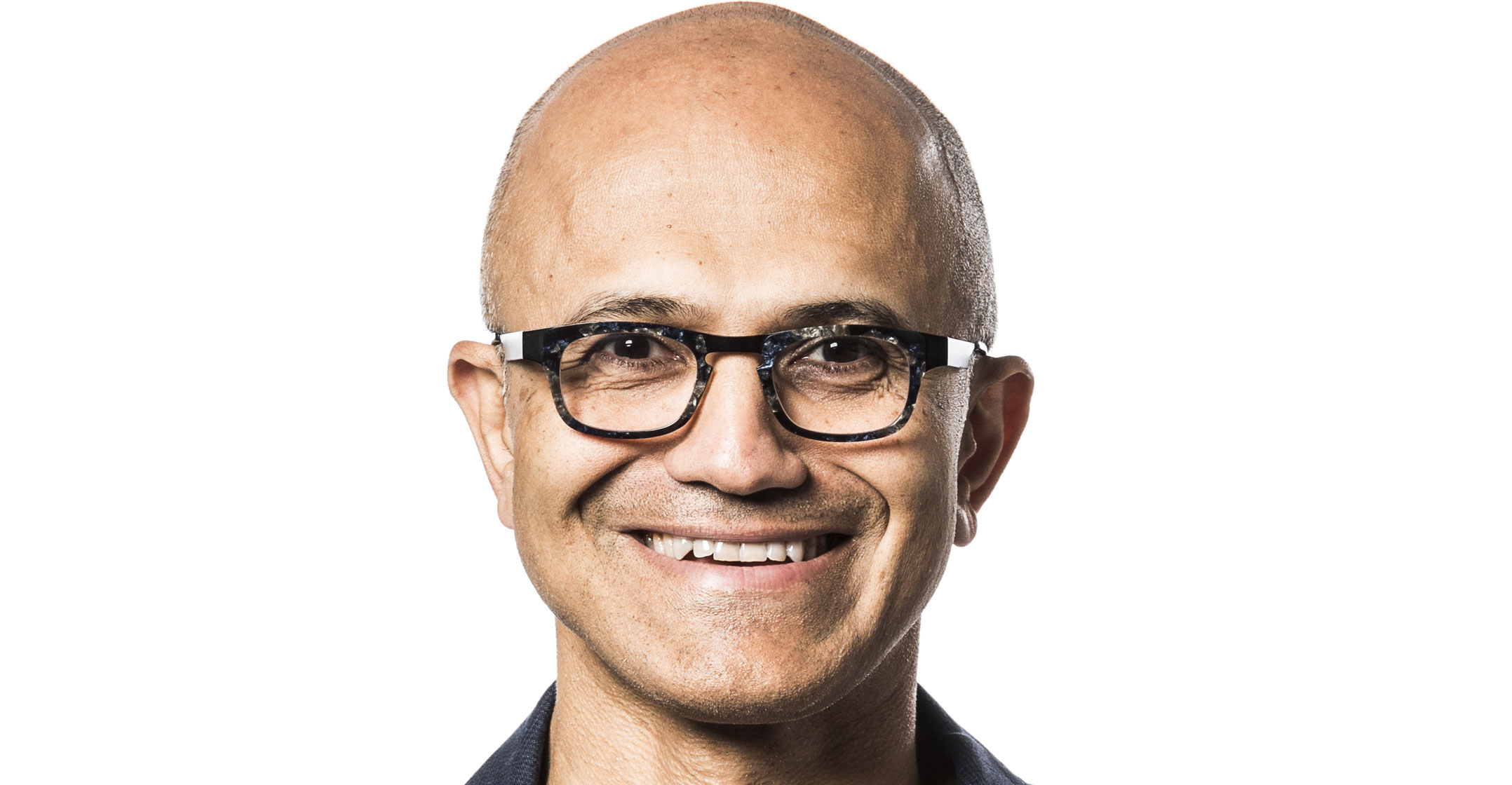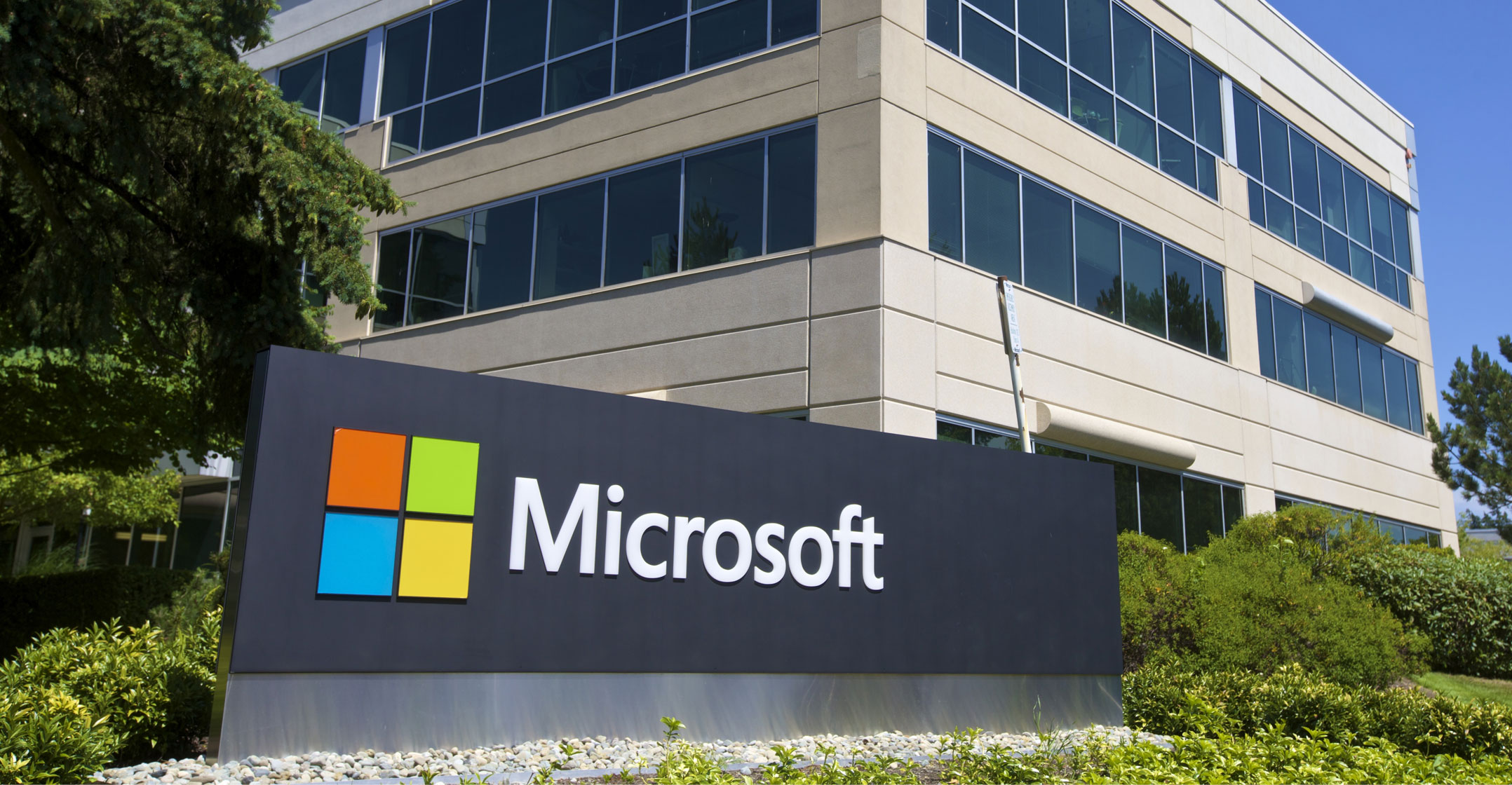
Microsoft took its place in the history books as just the second US public company to reach a $2-trillion market value, buoyed by bets its dominance in cloud computing and enterprise software will expand further in a post-coronavirus world.
Its shares rose as much as 1.1% to $265.64 on Tuesday in New York, enough for the software company to join Apple as one of only two companies trading at such a lofty value. Saudi Aramco eclipsed that threshold briefly in December 2019, but currently has a market value of about $1.9-trillion.
Since taking the reins in 2014, CEO Satya Nadella has reshaped the Redmond, Washington-based company into the largest seller of cloud computing software, counting both its infrastructure and Office application cloud units. Microsoft is also the only one of the biggest US technology companies that has so far evaded the recent wave of scrutiny from increasingly active American antitrust regulators, giving it a freer hand in both acquisitions and product expansion.
Microsoft has gained 19% so far this year, outperforming Apple and Amazon.com, as investors piled into the stock on expectations of long-term growth for both earnings and revenue, and expansion in areas like machine learning and cloud computing. The company’s third quarter results, released in late April, topped expectations and demonstrated strong growth across its business segments.
The tech-heavy Nasdaq 100 Index outperformed the S&P 500 Index on Tuesday after Federal Reserve chairman Jerome Powell reiterated his view that inflation will be short-lived. Both benchmarks rose to session highs after Powell’s comments with the Nasdaq 100 up 1.1% and the S&P 500 up 0.7%.
‘Warranted’
“Microsoft checks all the boxes: It is in the markets that investors favour, it offers strong and sustainable growth, and it remains very well positioned to capitalise on the long-term secular trends we see in technology,” said Logan Purk, an analyst at Edward Jones. A $2-trillion valuation “is warranted, given how it has pivoted toward the cloud, and it remains attractively valued even given the strong performance”.
Co-founded in 1975 by Bill Gates and Paul Allen, Microsoft created the PC software industry and dominated the market for PC operating systems and office software for years. As Internet browsers like Netscape grew in importance in the 1990s, Microsoft raced to introduce its own product that it bundled with Windows software. That led to a bruising antitrust lawsuit, filed in 1998 by the US government, with a federal judge finding the company guilty in 2000.
Though Microsoft avoided a break-up of its business, the penalty the government originally sought in the antitrust case, the next decade saw the software maker largely miss the advent of mobile software, social media and Internet search, falling behind newer rivals such as Google and nimbler ones like Apple. With a series of strategic shifts, in the past seven years Nadella has restored Microsoft to the vanguard of technology with a focus on cloud, mobile computing and artificial intelligence.
 While it took Microsoft 33 years from its IPO to reach its first $1-trillion in value in 2019, the next trillion only took about two years amid a surge in popularity in tech stocks before the Covid-19 pandemic and during the health crisis. Apple made Wall Street history when it reached $2-trillion last year.
While it took Microsoft 33 years from its IPO to reach its first $1-trillion in value in 2019, the next trillion only took about two years amid a surge in popularity in tech stocks before the Covid-19 pandemic and during the health crisis. Apple made Wall Street history when it reached $2-trillion last year.
Among US names, the pair are trailed by Amazon.com, which has a market cap of nearly $1.8-trillion, and Alphabet, which is valued around $1.6-trillion.
Microsoft’s cloud computing business has been a central force behind the advance. The Intelligent Cloud business accounted for 33.8% of Microsoft’s 2020 revenue, making it the largest of the three major segments for the first time, and up from 31% in 2019. The division showed revenue growth of 24% last year, compared to the 13% growth in Productivity and Business Processes, and the 6% growth of Microsoft’s More Personal Computing unit.
Nadella’s strategic moves had put Microsoft in a position to benefit from business trends that arose during the global pandemic. Lockdowns and remote work accelerated a shift to the company’s meeting software and pushed clients to speed up modernisations of software networks and applications around the cloud. The software maker’s Xbox gaming subscriptions also lured users looking for diversion during months stuck at home.
As workers return to the office, Microsoft has tried to push new ideas for managing meetings where some attendees are in person and some remote, and has been hawking features to boost wellness and productivity for workers that the company says are burned out by the tribulations of the past year.
IT wallet share
“At a high level, the two core pillars of Microsoft’s bull narrative — Microsoft 365 and Azure — are well understood by the investment community,” William Blair analyst Jason Ader wrote in May. “What is perhaps less appreciated is how over the last 15 years Microsoft has expanded its IT wallet share through expanding into new product areas” and taking market share. The wallet share doubled from 2006 to 2020, and “we believe it can double again over the next decade”, it wrote.
Wall Street is also positive on the company’s M&A strategy. It recently announced that it is buying speech-recognition pioneer Nuance Communications. The company also tried to acquire Discord for $12-billion, but the videogame chat company rejected Microsoft’s offer. — Reported by Ryan Vlastelica and Dina Bass, (c) 2021 Bloomberg LP

